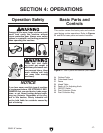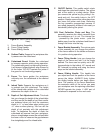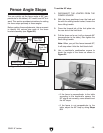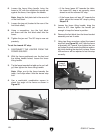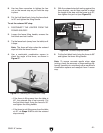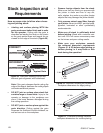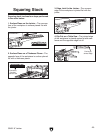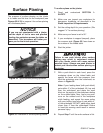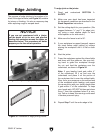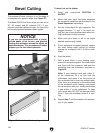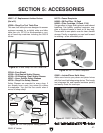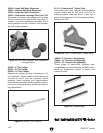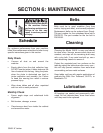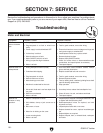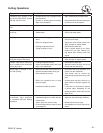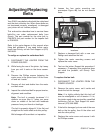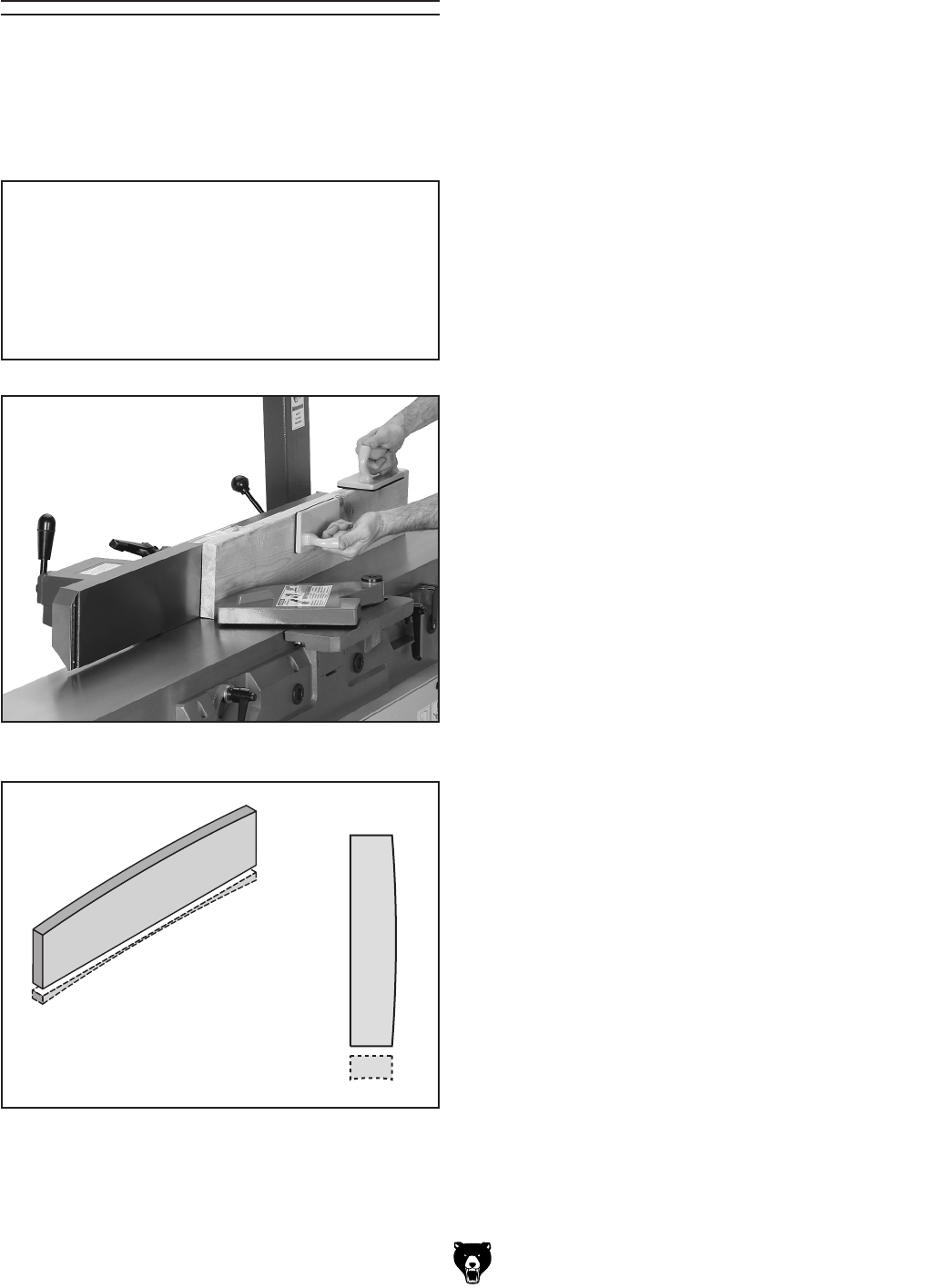
G0612 6" Jointer
-25-
The purpose of edge jointing is to produce a fin-
ished, flat-edged surface (see
Figure 34) suitable
for joinery or finishing. It is also a necessary step
when squaring rough or warped stock.
Figure 35. Illustration of edge jointing results.
To edge joint on the jointer:
1. Read and understand SECTION 1:
SAFETY.
2. Make sure your stock has been inspected
for dangerous conditions as described in the
Stock Inspection instructions
.
3. Set the cutting depth for your operation. (We
suggest between
1
⁄16" and
1
⁄8" for edge joint-
ing, using a more shallow depth for hard
wood species or for wide stock.)
4. Make sure the fence is set to 90˚.
5. If your workpiece is cupped (warped), square
the stock before edge jointing by surface
planing the workpiece until it is flat on both
sides.
6. Start the jointer.
7. Press the workpiece against the infeed table
and fence with firm pressure. Use your trail
-
ing hand to guide the workpiece through
the cut, and feed the workpiece over the
cutterhead, as shown in
Figure 34.
Note: If your leading hand gets within 4"
of the cutterhead, lift it up and over the
cutterhead, and place it on the portion of
the workpiece that is over the outfeed table.
Now, focus your pressure on the outfeed end
of the workpiece while feeding, and repeat
the same action with your trailing hand when
it gets within 4" of the cutterhead. To keep
your hands safe, DO NOT let them get closer
than 4" from the cutterhead when it is mov
-
ing! Failure to heed this warning could result
in serious personal injury.
8. Repeat Step 7 until the entire edge is flat.
Figure 34. Typical edge jointing operation.
Edge Jointing
NOTICE
If you are not experienced with a jointer,
set the depth of cut to zero, and practice
feeding the workpiece across the tables as
described below. This procedure will better
prepare you for the actual operation.



